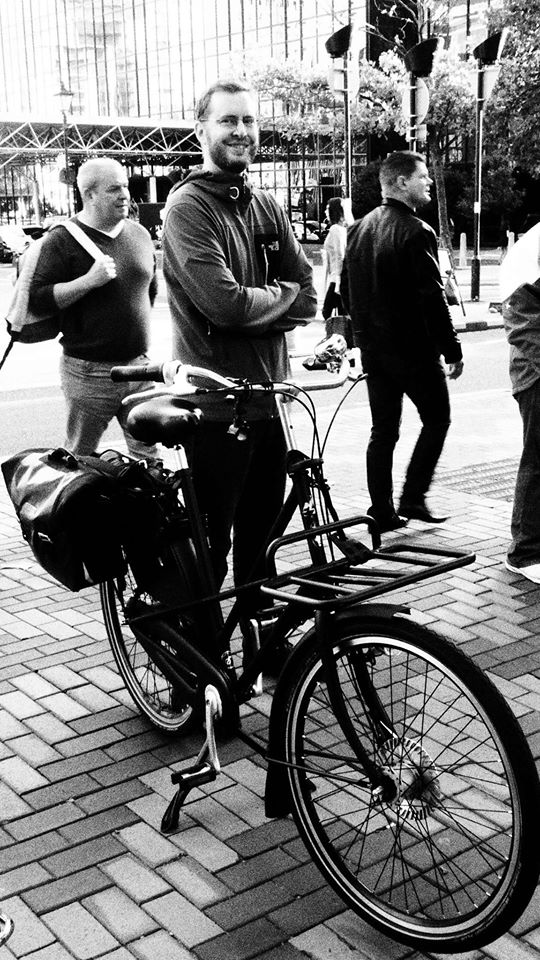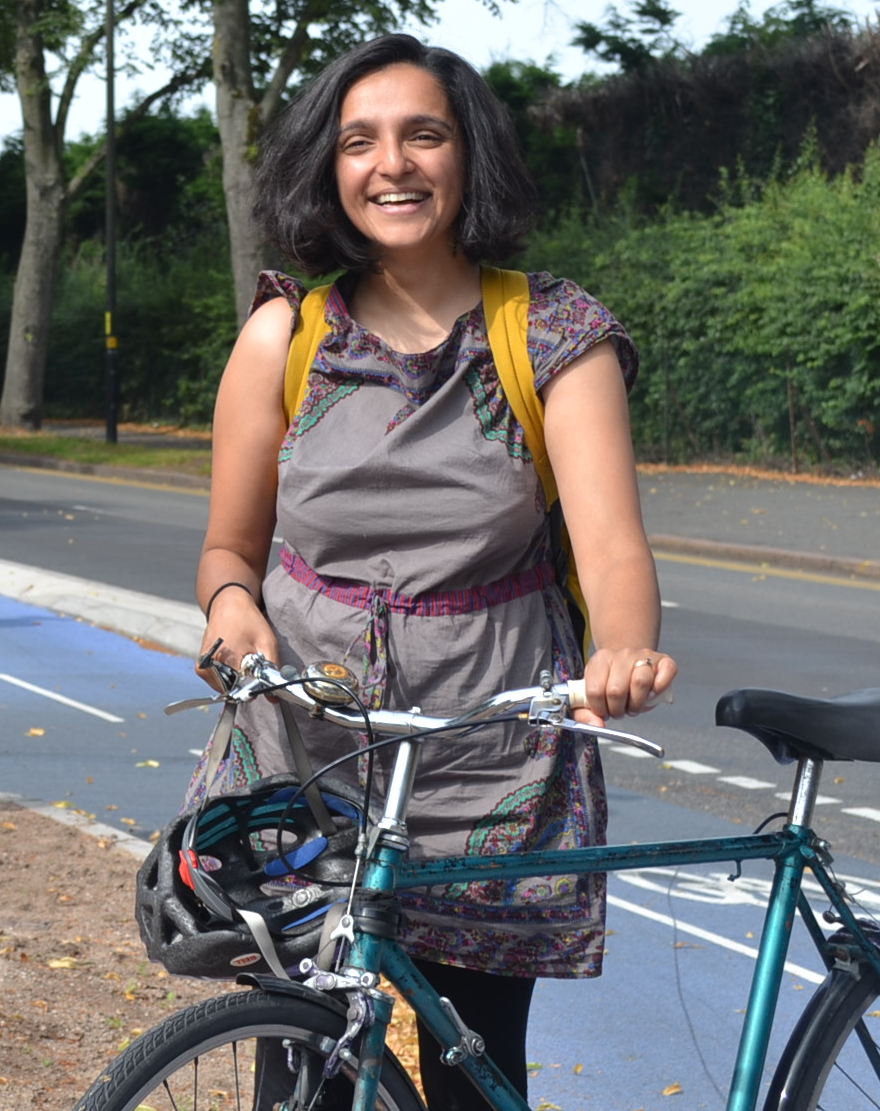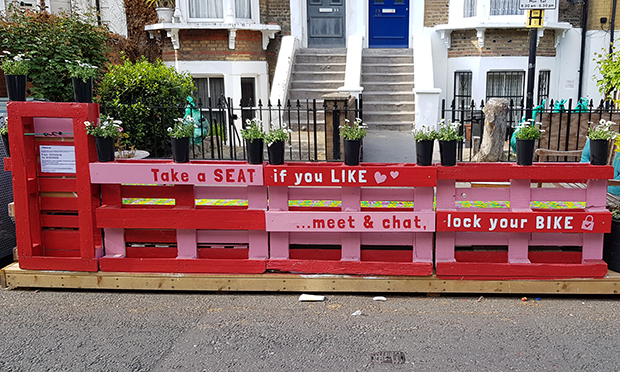In the first of a two part series Chair of Pushbikes (the Birmingham cycling campaign group) answers my questions on his history of cycling, both here and across the world. He also answers questions about his early days campaigning.
How did your interest in cycling begin?
My family cycled for as long as I can remember. We didn’t own a car until I was in secondary school, although we did car-share from when I was maybe 9 or 10. My earliest memories of holidays include bikes, although we didn’t do any cycle touring. My dad continued to cycle to work until he retired, even when he was commuting from Stourbridge up to the top of Netherton, which is an incredible climb. I shared a house with a keen CTC (as was) member when I was at university, so he helped with fixing problems with bikes I had, and we knew someone close by who did up bikes that he bought as job lots at the police auctions. I’ve never owned a car, and I didn’t even consider having driving lessons until my late 20’s, so cycling has always been my way of getting around. My learner’s license expired several years ago. The longest I’ve gone without really cycling were the 2 years I was living in China – without anywhere secure to store a bike and terrifying road conditions, I didn’t feel confident going out. When I lived in Japan, most of the students at the high school I worked at would cycle to school – probably 4 or 5 miles for most of them – through winter and long hot humid summers. I cycled then as well, although not everyday. I’m not a sports cyclist – I’m not particularly keen on riding at speed with bunches of other people on bikes. I prefer cycle touring, taking my time enjoying the scenery.
How did your interest in campaigning start?
My interest in campaigning started about the same time that I got involved in Push Bikes. I’d been reading David Hembrow’s blog, “A View From The Cycle Path” for a couple of years, and then met Push Bikes at their stall at one of the closed road cycle events going down Pershore Road, known as Sky Rides. Cycling in Japan had been a very different experience to cycling in the UK – I had never, in 3 years, had any problems with aggressive driving, and seeing all the school students cycling, and seeing the masses of bikes parked at the train stations, was an eye-opener. I’ve always been political, but it wasn’t until I saw from Hembrow what cycling could be like that I really wanted to change cycling conditions in the UK.
Was cycling campaigning as you expected it to be?
Yes, I think so. I’d read about cycle campaigning in the UK from Hembrow’s blog, and while he has a particular take on campaigning here, it was certainly a useful read. When I started campaigning, there was still a lot of focus among campaigners on ensuring cycle users were educated to take the road and assert their right to be there. I remember that the first Cyclenation conference I attended was focused on how to tackle negative ideas about cycling, principally, it seemed that it was dangerous. I think that there is certainly important work to be done in teaching people how to cycle and to be confident, but organisations such as the Active Wellbeing Society in Birmingham do that job really well. The focus that I wanted was on delivering infrastructure that attracted both experienced and confident cycle users and people completely new to cycling. That means Dutch quality – and I’m pleased that there has been real enthusiasm in the cycle campaigning community for increasing the aspiration of our demands.
How does cycling compare in other countries other than the UK?
I don’t know is the honest answer. In Japan, the roads generally weren’t widened and straightened, so cars don’t go so fast and drivers grew up either cycling or with friends who cycled to school. There is a need for cycle campaigning there to increase knowledge of how modern roads can have cycling designed in, but there is a high level of cycling regardless of that. Electric bikes are making a major difference, I think, as they enable people to cycle in summer without getting sweaty (well, sweatier than you get just by sitting in the shade where I lived…) In China there used to be good wide segregated cycle lanes on many main roads, but those have been turned over to the creep of motor traffic. Campaigning is a challenge in China – there’s more to be done by British councils in inviting Chinese city officials to visit and look at good infrastructure, perhaps, rather than expecting strong grass-roots campaigns to take off. Chinese cities face even more challenges from congestion and growing affluence increasing car ownership than we do in Birmingham.
Where cycling is taken much more seriously than in the UK, how did they get there?
Japan has a culture of utility cycling – everyone, it seems, has a very practical but cheap beat-up bike for getting to the local train station or going to the bar in the evening. But many people don’t do much cycling after they finish high school, instead favouring public transport or cars with air conditioning for the summer. Japanese do respect the rights of people to cycle almost everywhere, and are very patient with cycles when driving their car. Japan didn’t modernise their road network in the way that the British did: outside of main roads, pavements are often non-existent or a painted line along the road, and there are lots of areas that have very poor permeability for driving but good links for cycling and walking. This means that cycling around Japan often feels like you are in a traffic calmed area – cars can get to the road, but most people aren’t driving. In Japan, you generally aren’t supposed to park on the roads, so if your home (house or apartment) doesn’t have a parking space, then you can’t have a car. There are many Japanese who don’t have driving licenses or don’t own a car.
Sports cycling is becoming more popular in Japan, and I have heard that many cities have started to install cycle lanes – but I suspect those will have issues at junctions as they do in the UK. Electric bikes should have a big impact in Japan and change the transport environment significantly with very little effort because Japan never really gave up on cycling, even if it wasn’t actively planned for.
If you would like to know more about campaigning on cycling. Pushbikes website is here









One Response